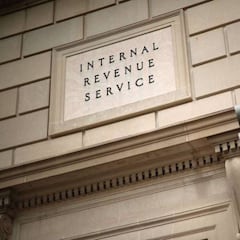What does the Build Back Better bill mean for your taxes?
As President Biden looks to build support for the $2 trillion legislative package we take a look at the government's taxation plan to pay for the programmes.


The Build Back Better bill remains locked in Senate negotiations for now, despite President Biden’s hopes of getting the expansion package signed into law before Christmas.
The ambitious legislation, currently thought to represent about $1.9 trillion of additional spending, is designed to overhaul the national social safety net and introduce new green energy initiatives. It would also extend the expanded Child Tax Credit for an extra year and grant greater powers to Medicare providers.
The Congressional Budget Office estimates that the bill, if passed in its current state, would only increase the national deficit by $367 billion over the next decade. Here’s what that means for your taxes…
Read more
- What tax credits are available for US citizens?
- First 2022 Social Security payments will be sent this month
- Time is running out for a Child Tax Credit extension
Few will experience tax increases, say financial advisors
Given the vast scope of the Build Back Better bill some had expected substantial tax rises to cover the cost, but it seems like the vast majority of Americans will not experience any considerable increase to their taxes.
Jeffrey Levine, a certified financial planner and CPA at Buckingham Wealth Partners, told CNBC: “The biggest takeaway for Build Back Better is the lack of change.”
For months financial advisors had warned that higher ordinary income taxes could be on the way, but neither that nor a capital gains levy increase have materialised. Furthermore, suggestions that the estate and gift tax exceptions would be cut appear to be false.
Under my Build Back Better Act, no one earning less than $400,000 will pay a single penny more in federal taxes.
— President Biden (@POTUS) December 2, 2021
But 55 of the largest companies — that paid zero in federal income taxes last year on $40 billion in profits — will finally start paying their fair share. pic.twitter.com/ajbtTgeeDL
The headline figure of around $1.9 trillion has been contested by Republicans in the Senate, who have argued that, if all provisions are made permanent the total cost could be closer to $5 trillion. However the Democrats remain confident of covering the cost without needing to introduce higher taxes across the board.
The super-wealthy and corporations will bear the brunt of increases
All of this is good news for taxpayers who may have feared that the expansive new legislation would come at a cost. The only areas to see any real change are those relating to the real top earners and large corporations.
Related stories
Levine said that, if the bill is passed, high-income S corporation owners may have to pay a surtax of around 3.8% on profits. Likewise a 5% levy for individuals earning more than $10 million per year could be on the way, with an extra three percentage points added on the levy when income exceeds $25 million per year.
These new individual taxation levels will be reserved for the very top earners, but the same taxes, 5% and 8%, will also be applied to trusts at thresholds of $200,000 and $500,000. Anyone with a substantial retirement accounts in the form of a trust could easily exceed those thresholds due to a 10-year withdrawal rule.

